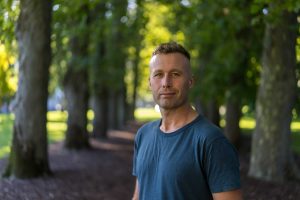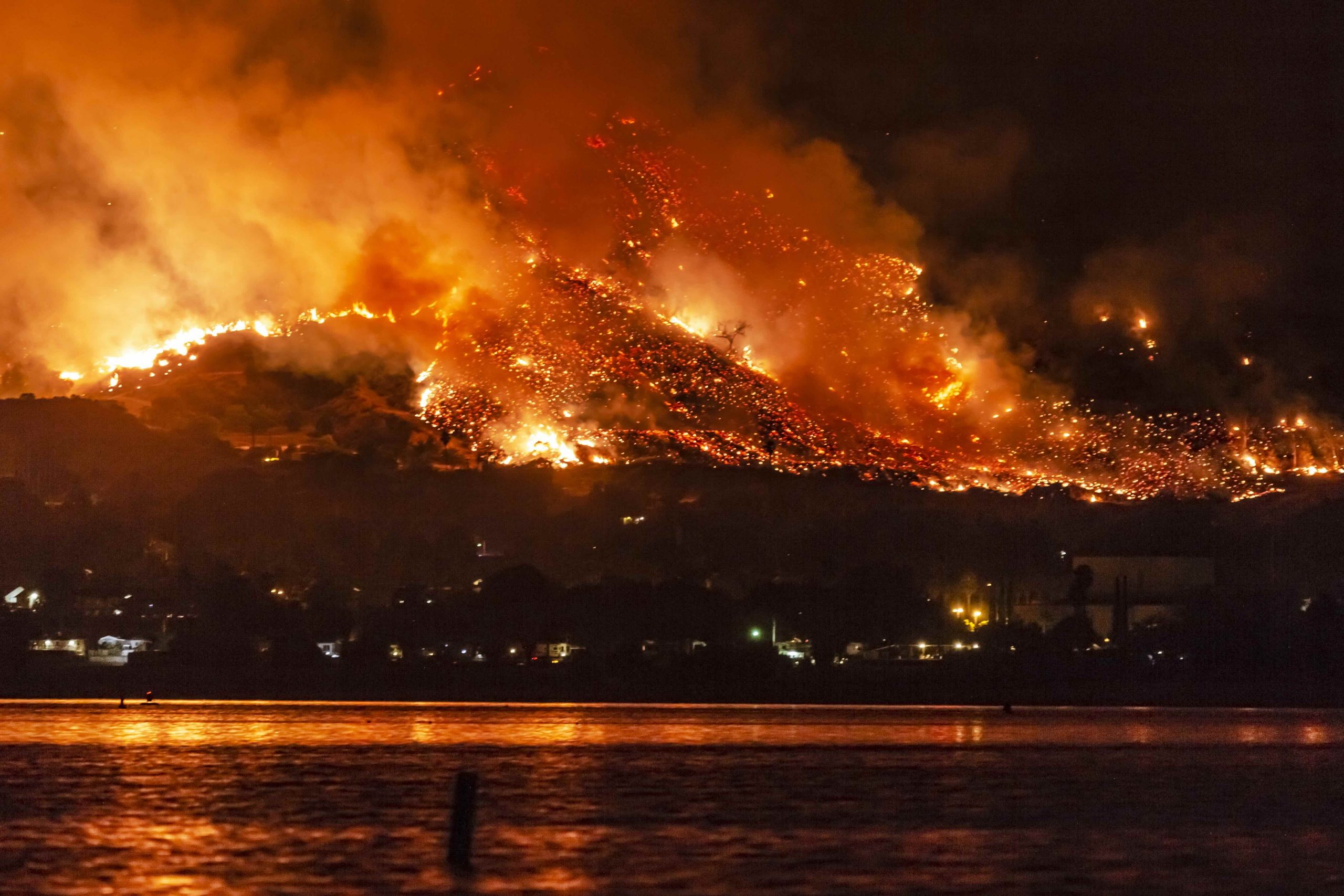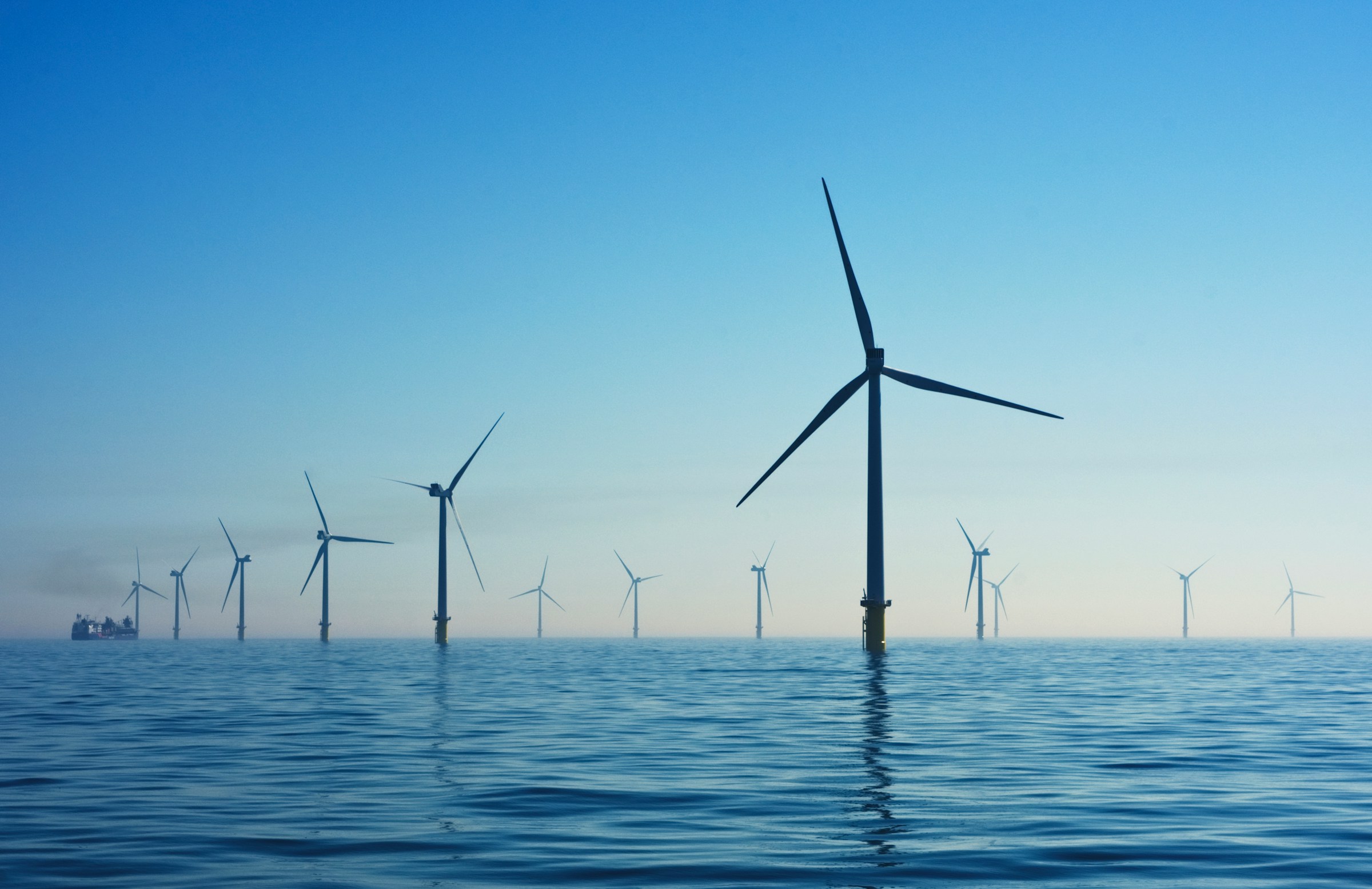Intertwined interests and short-term profit seeking continue to feed the love story between the finance sector and the fossil fuel industry. However, bring together enough people that are opposed to this marriage and they turn into a market force that has the power to stop banks, superannuation funds and governments from investing in damaging projects that fail to protect the environment and society’s true interests.
Climate campaigner Julian Vincent, founder and executive director of Market Forces, works tirelessly to help people make their voices heard and applys pressure on financial institutions that are investing in fossil fuel infrastructure from the inside.
From putting a stop to fossil fuel investments to initiating the discussion around “who owns and who is affected by” the energy transition, Vincent talks us through the climate challenges of today and tomorrow.
“Investors are finally cottoning on to the limitations of fossil fuel infrastructure and companies that don’t recognise how quickly the tide can turn are at risk,” he explains.
How are you engaging in climate advocacy?
In a nutshell, I do whatever I can to convince financial institutions to withhold from financing polluting fossil fuel projects. This also involves advocating for policies that will redirect financing towards renewable energy.
When I started Market Forces there were no organizations in Australia that consistently focused on the role of finance from an outsider’s perspective to help solve major environmental challenges. Although there were some groups working “inside the tent” and trying to negotiate with companies and financial institutions there was a definite lack of a consistent outside presence challenging these institutions, which is something that really can make or break companies.
Market Forces, which is now almost ten years old, was created to deliver this critical piece of the puzzle and focus on finance.
What is the meaning behind the name “Market Forces”?
The name is a way of reclaiming the term. Market forces are usually something that we hear about through financial news which often talks about the market force as something which we have no power or influence over. Ultimately, markets are built on people, their savings, deposits, work and engagement with goods and services. The name points out what a market force really is: simply the sum of hundreds, thousands and even millions of peoples’ collective decisions and actions.
When you choose to use one bank and not another, or consume a product or service, that is a market force.
The trick to getting traction with our advocacy work is to actually build that collective power whether it be with shareholders, customers of banks, members of pension funds or people who use different types of products and services. We show people that they are not acting alone. There are many other people acting with them and together they can become a force for change: a “market force”, which shifts from a disempowering to an empowering term.
“The modern addiction to fossil fuels is not just an act of environmental vandalism. From the health perspective, it is an act of self-sabotage”, said Tedros Adhanom Ghebreyesus, Director-General of the World Health Organization. @HESTASuper https://t.co/63S6D6tiyF
— Market Forces (@market_forces) September 16, 2022
What kind of campaigns have you worked on?
In Australia we’ve had a lot of success shifting the policies of major banks. This is a country that, historically, has been dominated politically by the coal sector and to get all of Australia’s major banks to commit to no longer be exposed to thermal coal by 2030 was something that I didn’t think they would do.
The environmental movement has also managed to get similar commitments from banks in Singapore and Japan in efforts to put a stop to the financing of new coal power plant projects.
For example, during my last visit to Tokyo in June we worked with local partners to submit shareholder resolutions that called for four major Japanese corporations – Mitsubishi Corp., Tokyo Electric Power Co., Chubu Electric Power Co., and Sumitomo Mitsui Financial Group – to adopt business plans that align with the Paris Agreement goal to limit global warming to 1.5 degrees Celsius. During my stay in the country we received news that Japan would no longer finance new coal power plants abroad, putting a stop to the last two coal power projects it was preparing to finance.
This was a massive campaign that we worked on with local partners and although the Japanese government really did pull out all the stops to try and continue financing these overseas projects they were ultimately forced to stop because of the collective action of people.
What made these campaigns successful?
Overall we are witnessing the end of new coal power plant proposals in the region and, although it has happened far later than it should have, we are finally at the point where the last coal power plants are being built. This is a significant achievement.
Successful campaigns are always about getting people involved and our campaigns aim to help people speak up and express their opposition, whether they are a major stakeholder in the region where a project is proposed or they are a member of a financial institution who wants to see change. It’s the people that get on board that gives weight and gravitas to campaigns.
If people are the most important ingredient then what is the main thing holding them back from taking collective action on climate change?
My inclination is always to look at what we can do. Even though we are up against issues such as lack of information and an intense push by fossil fuel companies that use marketing tools and all sorts of other tricks to placate people from getting involved it is our job to provide the counterarguments.
There are a lot of very reasonable excuses and reasons why it is difficult to do what we do but we need to look at what we can control: our own ability to get valuable information out to the world and put it before people so that they can engage and take action.
How important is climate science in your work and is it present in the boardrooms and decision making circles that you engage with?
Market Forces’ relationship is that we are guided by climate science in finding and developing our projects. Climate science has shown us that the continuation of fossil fuel projects and the coal industry is not compatible with a stable climate system. It provides the guardrails that dictate our work and is critical in supporting the asks that we make of financial institutions.
We stick to and rely on climate science and, quite frankly, there is no need to deviate from it: things are bad enough and scary enough without any need for extra hype.
In contrast, the role of climate science in boardrooms is very limited and in many companies the approach tends to be: “yes the science says this, but we need to turn a quarterly profit”. Ultimately, there is a mismatch in terms of timescales: if you are on a company board, net zero by 2050 won’t mean much to you as you will probably only be there for a few years. The kinds of decisions taken in boardrooms tend to determine the short term and not what happens by 2030 or 2050.
In general there’s a huge lack of awareness and education when it comes to issues around climate risks and climate risk management, as well as a lack of incentives and strategic frameworks in terms of long term time horizons.
Market Forces is based in Australia but you also work with a lot of countries in Southeast Asia. Is this a reflection of the way fossil fuel finance moves across borders?
Representatives from countries such as Indonesia and Vietnam would reach out to us and seek information about where the financing of fossil fuel projects was coming from and how to intervene. So, we started working with groups throughout the Australasian region to fight back against new proposed fossil fuel projects and shift the policies of financial institutions in Australia, Singapore, Japan, Korea and, more recently, China.
It is evident that there are interconnected political, economic and strategic interests which dominate country and corporate relations. Countries such as Australia and Indonesia supply dirty fuel to the likes of Bangladesh, Thailand, the Philippines and Vietnam, where in turn fossil fuel power plants are built using technology from Japan, China and sometimes the US.
There are big strategic and corporate interests in building fossil fuel infrastructure and burning fossil fuels in Southeast Asia. For example, Japanese corporations are lobbying governments in Bangladesh and Vietnam intensely to build natural gas technology.
As Japan mulls financing new coal power plants, @Market_Forces and global allies have published this striking ad in today's @nytimes. @JapanGov, your overseas coal policy is worse than China's. Time to stop funding coal abroad. pic.twitter.com/iKN1vh7B4z
— Adam McGibbon 🌍 (@AdamMcGibbon) October 1, 2021
Are countries with stricter climate regulations exporting their dirty industries and “negative externalities” abroad?
Externalities is too kind a word as it implies that it’s kind of incidental and that these projects need to be built but there are unavoidable externalities. But, the reality is that they don’t need to be built. These are companies that have an interest in building fossil fuel infrastructure because that is their line of business and they want to milk that as much as they can.
It is getting harder and harder for them to get away with it in wealthier countries so they are lobbying and creating markets for themselves abroad which is deeply cynical.
A country like Bangladesh has a power utilization rate of approximately 50% and is therefore struggling with capacity payments – which are payments to power plant owners for power generation capacity which it isn’t using. In Vietnam it is now cheaper to build renewable energy infrastructure than fossil fuel plants but greedy companies continue to build as much of the latter as they can get away with.
These countries don’t need new infrastructure but companies like JERA and Mitsubishi have an interest in selling things like gas generating technology and they will continue to do so regardless of the needs or local economics.
Is it possible to redirect and transform finance into a force for good?
It’s all about the old carrot and stick cliche. We need to provide incentives for more investment in renewables, carrots, whilst at the same time making companies invested in fossil fuels feel the true risks embedded in this line of business, sticks. Companies will keep doing what they are doing until we apply that mixture of pressure and incentive.
Where is that pressure going to come from?
It will come from civil society, and shareholder action. At a company like Mitsubishi a mixture of consumers, shareholders, regulators and civil society holding them accountable is essential.
Although policy definitely needs to play a part, unfortunately I believe that in many countries corporate interests still trump policy.
On the positive side boardrooms are not parliamentary democracies and when you get a vote that is more than 5% against the direction of management it is seen as a significant backlash. So, to get 27% opposition like we did at SMBC’s Annual General Meeting shows a strong backlash against the company. Our work is about changing these companies and shareholder resolutions are just one step in that direction.
How do you picture your advocacy work changing in the near future?
It took a very long time, far too long, to get to the point where we don’t have any new coal power plants in the pipeline. The next step is to put a stop to all fossil fuel infrastructure. I don’t think this will take as long as it did with coal as investors are cottoning on to the limitations of fossil fuel infrastructure and companies that don’t recognise how quickly the tide can turn are at risk.
Now, the conversation is becoming about how quickly we transition, who owns that process and who is affected by it. Are we investing enough in alternatives to oil and gas? Are we helping workforces transition and build new skills? It is a great conversation to have because it’s about the transition and how we manage it.
 Founder, Executive Director and Lead Campaigner at Market Forces, Julien has been an environmental campaigner and activist for over a decade. Formerly Climate and Energy Campaigner with Greenpeace Australia Pacific and Greenpeace International from 2006-2012, he was awarded the Goldman Environmental Prize in 2022 for his successful grassroots campaign to defund coal in Australia which led to four of the country’s largest banks committing to cease funding coal projects entirely by 2030.
Founder, Executive Director and Lead Campaigner at Market Forces, Julien has been an environmental campaigner and activist for over a decade. Formerly Climate and Energy Campaigner with Greenpeace Australia Pacific and Greenpeace International from 2006-2012, he was awarded the Goldman Environmental Prize in 2022 for his successful grassroots campaign to defund coal in Australia which led to four of the country’s largest banks committing to cease funding coal projects entirely by 2030.






